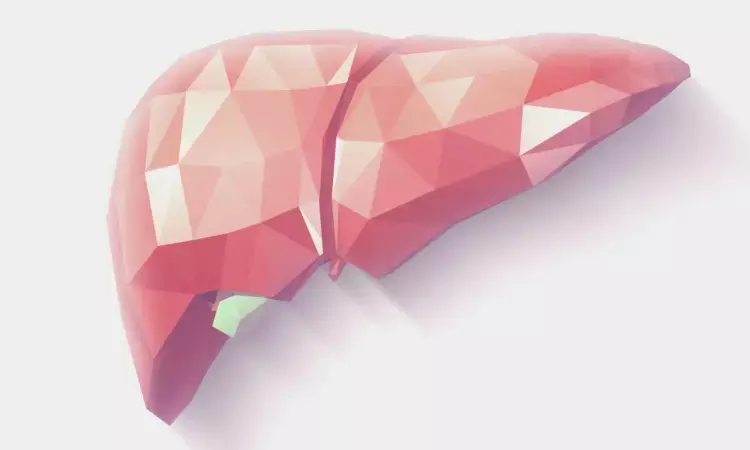- Home
- Medical news & Guidelines
- Anesthesiology
- Cardiology and CTVS
- Critical Care
- Dentistry
- Dermatology
- Diabetes and Endocrinology
- ENT
- Gastroenterology
- Medicine
- Nephrology
- Neurology
- Obstretics-Gynaecology
- Oncology
- Ophthalmology
- Orthopaedics
- Pediatrics-Neonatology
- Psychiatry
- Pulmonology
- Radiology
- Surgery
- Urology
- Laboratory Medicine
- Diet
- Nursing
- Paramedical
- Physiotherapy
- Health news
- Fact Check
- Bone Health Fact Check
- Brain Health Fact Check
- Cancer Related Fact Check
- Child Care Fact Check
- Dental and oral health fact check
- Diabetes and metabolic health fact check
- Diet and Nutrition Fact Check
- Eye and ENT Care Fact Check
- Fitness fact check
- Gut health fact check
- Heart health fact check
- Kidney health fact check
- Medical education fact check
- Men's health fact check
- Respiratory fact check
- Skin and hair care fact check
- Vaccine and Immunization fact check
- Women's health fact check
- AYUSH
- State News
- Andaman and Nicobar Islands
- Andhra Pradesh
- Arunachal Pradesh
- Assam
- Bihar
- Chandigarh
- Chattisgarh
- Dadra and Nagar Haveli
- Daman and Diu
- Delhi
- Goa
- Gujarat
- Haryana
- Himachal Pradesh
- Jammu & Kashmir
- Jharkhand
- Karnataka
- Kerala
- Ladakh
- Lakshadweep
- Madhya Pradesh
- Maharashtra
- Manipur
- Meghalaya
- Mizoram
- Nagaland
- Odisha
- Puducherry
- Punjab
- Rajasthan
- Sikkim
- Tamil Nadu
- Telangana
- Tripura
- Uttar Pradesh
- Uttrakhand
- West Bengal
- Medical Education
- Industry
Routine Cirrhosis screening in dementia patients may rule out hepatic encephalopathy: JAMA

A recent retrospective cohort study revealed that veterans with dementia may be at risk of undiagnosed cirrhosis that can potentially lead to missed opportunities for treating Hepatic Encephalopathy (HE). The findings were published in the Journal of American Medical Association.
This study utilized data from the Veterans Health Administration (VHA) and two separate validation cohorts from 2009 and 2019 to highlight the prevalence and risk factors associated with undiagnosed cirrhosis among this vulnerable population. The cohort consisted of a total of 177,422 US veterans who were diagnosed with dementia during at least two clinic visits, without a prior cirrhosis diagnosis and with sufficient laboratory test results to calculate the Fibrosis-4 (FIB-4) score. Among these veterans, 5.3% expressed an FIB-4 score greater than 3.25 which suggested cirrhosis, while 10.3% had a score greater than 2.67 which indicated advanced fibrosis.
The key findings of the study were;
The outcome identified several major risk factors including older age, male gender, congestive heart failure, viral hepatitis, high Alcohol Use Disorders Identification Test scores and chronic kidney disease which were associated with a higher FIB-4 score. White race, diabetes, hyperlipidemia, stroke, tobacco use disorder and rural residence were inversely linked with the elevated FIB-4 scores.
Also, the implications of undiagnosed cirrhosis in dementia patients may contribute to the development of Hepatic Encephalopathy, which is often challenging to distinguish from dementia. The outcomes emphasize the importance of screening for cirrhosis using the FIB-4 score in patients with dementia to uncover reversible factors linked to cognitive impairment to enhance patient outcomes. Local validation cohorts further confirmed the association between high FIB-4 scores and cirrhosis.
Source:
Bajaj, J. S., Silvey, S. G., Rogal, S., O’Leary, J. G., Patton, H., Morgan, T. R., Kanagalingam, G., Gentili, A., Godschalk, M., & Patel, N. (2024). Undiagnosed cirrhosis and hepatic encephalopathy in a national cohort of veterans with dementia. JAMA Network Open, 7(1), e2353965. https://doi.org/10.1001/jamanetworkopen.2023.53965
Neuroscience Masters graduate
Jacinthlyn Sylvia, a Neuroscience Master's graduate from Chennai has worked extensively in deciphering the neurobiology of cognition and motor control in aging. She also has spread-out exposure to Neurosurgery from her Bachelor’s. She is currently involved in active Neuro-Oncology research. She is an upcoming neuroscientist with a fiery passion for writing. Her news cover at Medical Dialogues feature recent discoveries and updates from the healthcare and biomedical research fields. She can be reached at editorial@medicaldialogues.in
Dr Kamal Kant Kohli-MBBS, DTCD- a chest specialist with more than 30 years of practice and a flair for writing clinical articles, Dr Kamal Kant Kohli joined Medical Dialogues as a Chief Editor of Medical News. Besides writing articles, as an editor, he proofreads and verifies all the medical content published on Medical Dialogues including those coming from journals, studies,medical conferences,guidelines etc. Email: drkohli@medicaldialogues.in. Contact no. 011-43720751


